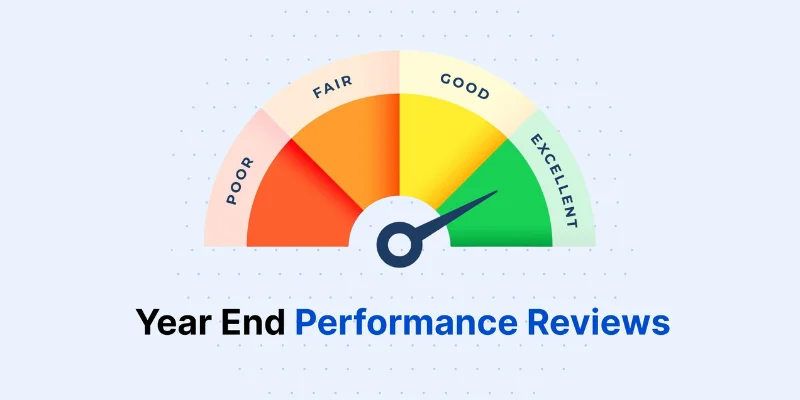Merit Increase Meaning, Definition & Benefits
A merit increase is a salary boost, or merit salary adjustment, that employers award to employees based on their strong performance.
It’s part of a company’s plan to reward hard work and achievements through merit pay increases. Another key point is that this can be in the form of a raise, bonus, or temporary pay boost. They may happen with a promotion, but not always.
Benefits of Merit Pay Increase
- Boost Motivation and Performance
A salary increment based on performance encourages employees to meet goals, improve skills, and work harder, which can boost the company’s performance. - Promote Loyalty and Retention
Rewarding hard work with an increase or incentive salary raise builds employee loyalty and helps reduce turnover. - Support a Strong Work Culture
They foster a culture of accountability, growth, and a clear connection between performance and rewards, including a reward-based pay increase.
Frequently Asked Questions
Q1. | Is a merit increase the same as a raise? |
| Ans. | No, it’s not the same as a raise. A merit increase is a type of raise, but not all raises are merit increases. Further, it’s a salary boost based on job performance, a key component of merit-based compensation. It rewards employees for meeting or exceeding expectations. On the other hand, employers can give a raise for various reasons, such as tenure, promotions, cost of living adjustments (COLA), or company-wide salary updates, not just performance. |
Q2. | What is a good merit increase? |
| Ans. | A good increase is often determined through a performance appraisal raise, ranging between 3% to 5% of an employee’s current salary. |
Q3. | How is a merit increase different from a pay raise? |
| Ans. | A merit increase is a salary boost given specifically for strong individual performance, while employers may grant a general pay raise for reasons like inflation, seniority, or company-wide adjustments. Furthermore, these aim to reward and motivate high-performing employees, whereas standard raises aren’t always linked to personal achievement. |
Q4. | Is a merit increase permanent? |
| Ans. | Yes, these increments are generally a permanent raise in an employee’s base salary and can be considered a compensation increase. Unlike temporary bonuses, they represent ongoing recognition of strong performance and long-term contribution to the company. |
Q5. | Can someone get a merit increase without a promotion? |
| Ans. | Yes, an employee can receive this increase without a promotion. It is based on performance within their current role and doesn’t require a change in job title or responsibilities. Moreover, employers consider this an increase in an employee’s salary, rewarding the individual for their contributions and achievements. |
Q6. | How often are merit increases given? |
| Ans. | Companies usually award a salary increment annually during the company’s review period, though the timing can vary depending on company policy and financial situation. In addition, some businesses may offer them semi-annually, quarterly, or after completing specific projects. To emphasize, it’s important to understand that merit increases are not guaranteed and depend on both individual performance and the company’s success. |
Q7. | Do all employees qualify for a merit increase? |
| Ans. | No, not all employees qualify for a reward-based raise. Companies usually give these raises to employees who show outstanding performance and make significant contributions to the company’s success. To point out, this type of increase is often referred to as a salary increment for performance, as it directly rewards individuals for their achievements and contributions. |
Q8. | What’s the difference between a merit increase and a bonus? |
| Ans. | A merit increase is a permanent boost to an employee’s salary, awarded for strong performance or accomplishments. In contrast, a company gives a performance bonus as a single payment to reward specific achievements or exceptional effort. While a pay raise based on performance, raises your regular pay, bonuses are one-time payments. In essence, a merit increase is a performance incentive or incentive pay that encourages continued high performance and recognizes long-term contributions. |
Q9. | How do organizations manage a merit increase budget? |
| Ans. | To begin with, organizations manage a merit increase budget by first setting aside a specific percentage of their compensation budget. This is commonly around 3.5%. Further, the company ties this budget to a pay-for-performance model, linking raises to employee achievements and contributions. Therefore, when planning this budget, companies consider several factors, such as their financial health, market competitiveness, inflation rates, and their business performance. Lastly, they also consider individual employee contributions, using the merit pool and employee recognition to ensure raises are fairly distributed based on merit. |
Resources
Explore how HR trends 2026 are shaping workplaces and employee experiences.
See how year-end reviews improve performance and organizational growth.
Discover how the 9-box grid helps identify and develop talent for business growth.





